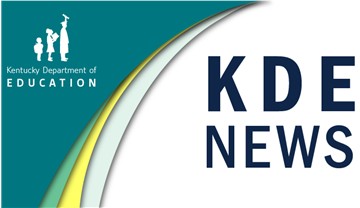Kentucky Numeracy Counts Act (House Bill 162) discussed in House Education Committee
FRANKFORT, KY – The Kentucky Department of Education Chief Academic Officer Micki Ray testified during the House Education Committee on Tuesday Jan. 23, 2024 in support of House Bill 162, the Kentucky Numeracy Counts Act, which would provide additional supports in mathematics beginning with the 2025-2026 school year.
 “If we can get a firm foundation for our students in reading and math, it will help them be successful in all their other endeavors, academic (and) in life,” said Rep. James Tipton, (right) the sponsor of HB 162. “It’s very important.”
“If we can get a firm foundation for our students in reading and math, it will help them be successful in all their other endeavors, academic (and) in life,” said Rep. James Tipton, (right) the sponsor of HB 162. “It’s very important.”
Ray said data gleaned from the Kentucky Performance Rating of Educational Progress (K-PREP) and Kentucky Summative Assessment (KSA) going back to 2018 shows Kentucky students have a need for more support in mathematics. Most recently, in 2023, 58% of grade 4 students and 64% of grade 8 students scored below proficiency.
The National Assessment of Educational Progress (NAEP) state data reveals a downward trend for grades 4 and 8 in mathematic outcomes. In 2022, Kentucky ranked 32nd in the nation for grade 4 math and 39th for grade 8 math.
“None of us in education and none of us across the Commonwealth are OK with these numbers for students,” said Ray. “We all want to see improved outcomes in mathematics. This is not only an educational issue, but also there are significant workforce implications as students advance through K-12 and beyond to what we hope is a successful experience in college and career.”
Ray said in kindergarten through 3rd grade, early numeracy is important, and existing statutes and grant programs are in place to support early numeracy initiatives throughout the state. This legislation, however, targets students in grades 4 through 8. The reason for this is math content cumulates as students advance through K-12, and as the content becomes more complex, students must be equipped to apply the content more skillfully and with flexibility. The need for effective evidence-based instruction is particularly critical in grades 4 through 8, when the mathematics concepts taught become more challenging.
Ray also shared data from ACT showing that the majority of students who are behind in math in grade 4 stay behind in grade 8 and grade 12, with the students farthest off track the least likely to catch up with grade-level math expectations. As such, educators need time and support to accelerate learning as students move toward graduation.
Ray said students deserve to be provided with high-quality instruction to be successful, while acknowledging the difficulty in finding highly qualified math teachers.
“We know that in middle school, it’s much more difficult to find highly trained teachers,” she said. “That is a critical shortage area. There was a recent OEA (Office of Education Accountability) report released in November 2023 that went into that very thing. It is difficult to find teachers for middle school mathematics and for high school mathematics, so we hope with the attention of the bill on math education and with the resources that would come along with the bill, we could start to train and retain those teachers, specifically in the middle school space as well.”
To address statewide needs in mathematics education, HB 162 outlines several comprehensive actions to improve mathematic outcomes:
- Statewide professional learning supports;
- Focus on Tier 1 instruction and increased access to evidence-based high-quality instructional resources for all students;
- Requiring a Mathematics Improvement Plan for students needing accelerated progress toward proficiency;
- Family and community engagement; and
- Teacher preparation and certification.
Local district and school implementation would not begin until the 2025-2026 school year, per HB 162.
If funding is appropriated, by Sept. 1, 2025, KDE would be required to establish teacher professional learning academies focused on evidence-based practices in instruction, instructional materials, and assessment in mathematics or coaching models for mathematics. KDE also may use the Kentucky Numeracy Counts Act Fund to establish grants to local school districts for the purchase of approved high-quality, evidence-based instructional resources aligned to math standards required in KRS 158.6453 for grades 4-8 and curriculum-based professional learning to implement the new resources for mathematics.
Kelly Delong, executive director of the Kentucky Center for Mathematics, said they are in “full support” of HB 162, and the center is ready to be the boots on the ground to make this a collaborative effort across the Commonwealth. Specifically, Delong spoke to KCM’s expertise and experience in statewide professional learning as well as in supporting teacher leaders and mathematics coaching.
Anthony Mires, executive director of Advance Kentucky – which works with school districts across Kentucky to provide professional learning in math, science and English/language arts – also offered support for the legislation. Mires shared data on the promising Access to Algebra program that could be expanded with the passage of the legislation.
KDE has asked for $10 million each year in the state’s biennium budget to implement HB 162.
Kentucky students need for more support in mathematics.










